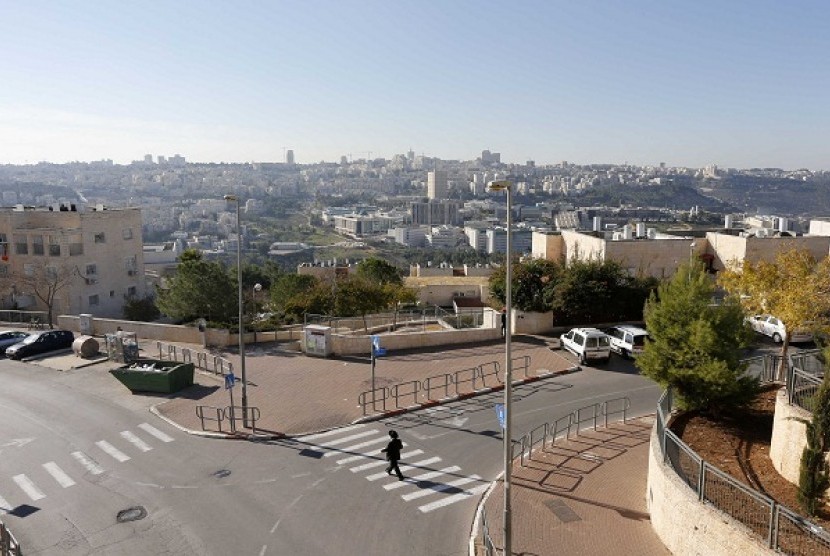REPUBLIKA.CO.ID, RAMALLAH - Nearly two dozen European diplomats have urged the EU to intensify efforts to block Israeli settlement in and near Jerusalem, saying such construction on occupied lands is the "single biggest threat" to a Mideast peace deal, according to an internal report Wednesday.
The diplomats also said the EU must ensure that aid to Israel and preferential trade agreements don't inadvertently benefit settlements, according to the report obtained by The Associated Press.
They recommended that the EU "prevent, discourage and raise awareness" of direct investments by European companies in settlements, but did not elaborate.
While the recommendations are non-binding, the report, endorsed by 22 heads of mission posted in east Jerusalem and the West Bank, reflects Israel's growing international isolation over the settlement issue.
President Barack Obama confronted Israel over settlements early in his first term, but then backed off, and it's not clear if he will make another serious attempt to pressure Israel in his second term.
Israel built dozens of settlements after capturing the West Bank, Gaza and east Jerusalem in 1967. More than half a million Israelis live in settlements in the West Bank and east Jerusalem, complicating efforts to partition the land under a future peace deal. Israel pulled out of Gaza in 2005.
"Settlement construction remains the single biggest threat to the two-state solution," the report said, portraying the policy as "systematic, deliberate and provocative."
Israeli Foreign Ministry spokesman Yigal Palmor said he had not seen the EU report, only what was published in the media. "The mission of a diplomat is to build bridges, not to foster confrontations," he said. "The EU consuls have therefore failed miserably in their mission."
The issue of settlements must be addressed in Israeli-Palestinian negotiations, Palmor said.
The Palestinians have said they will not resume negotiations unless Israel freezes settlement construction on lands they claim for their state, including the Gaza Strip, where Israel no longer has settlements.
Palestinians have negotiated in the past while settlement expansion continued, but said they are no longer willing to engage in open-ended negotiations they suspect largely serve Israel as a diplomatic cover for tightening its grip on occupied lands through settlements.
The EU report singled out Israeli policies in east Jerusalem, particularly several major settlement projects being planned there.
"Punishment"
Israeli Prime Minister Benjamin Netanyahu has often come out against dividing Jerusalem. Israel annexed the eastern sector, sought by the Palestinians as a capital, weeks after capturing it in the 1967 Mideast war, a move not recognized internationally. Beyond its greatly expanded borders of Jerusalem, Israel has not annexed West Bank territory.
The EU report said Israel approved an unprecedented number of settlement plans in and near east Jerusalem in response to the Palestinians' successful bid in November to win UN recognition for a state of Palestine in the occupied lands.
If the current pace of settlement building on Jerusalem's southeastern flank continues, "an effective buffer between east Jerusalem and Bethlehem (in the West Bank) may be in place by the end of 2013, thus making the realization of a viable two-state solution inordinately more difficult, if not impossible," it said.
The consuls recommended that the EU intensify efforts to "counter settlement activity" in and near east Jerusalem and make sure EU aid programs don't inadvertently benefit settlements. They also proposed developing voluntary guidelines for EU tour operators to prevent support for settlement businesses in east Jerusalem.
It remains unclear what impact the report will have. The recommendations have not been endorsed by the EU, and the European bloc in any case plays only a supportive role in U.S.-led international efforts to broker an Israeli-Palestinian deal.


